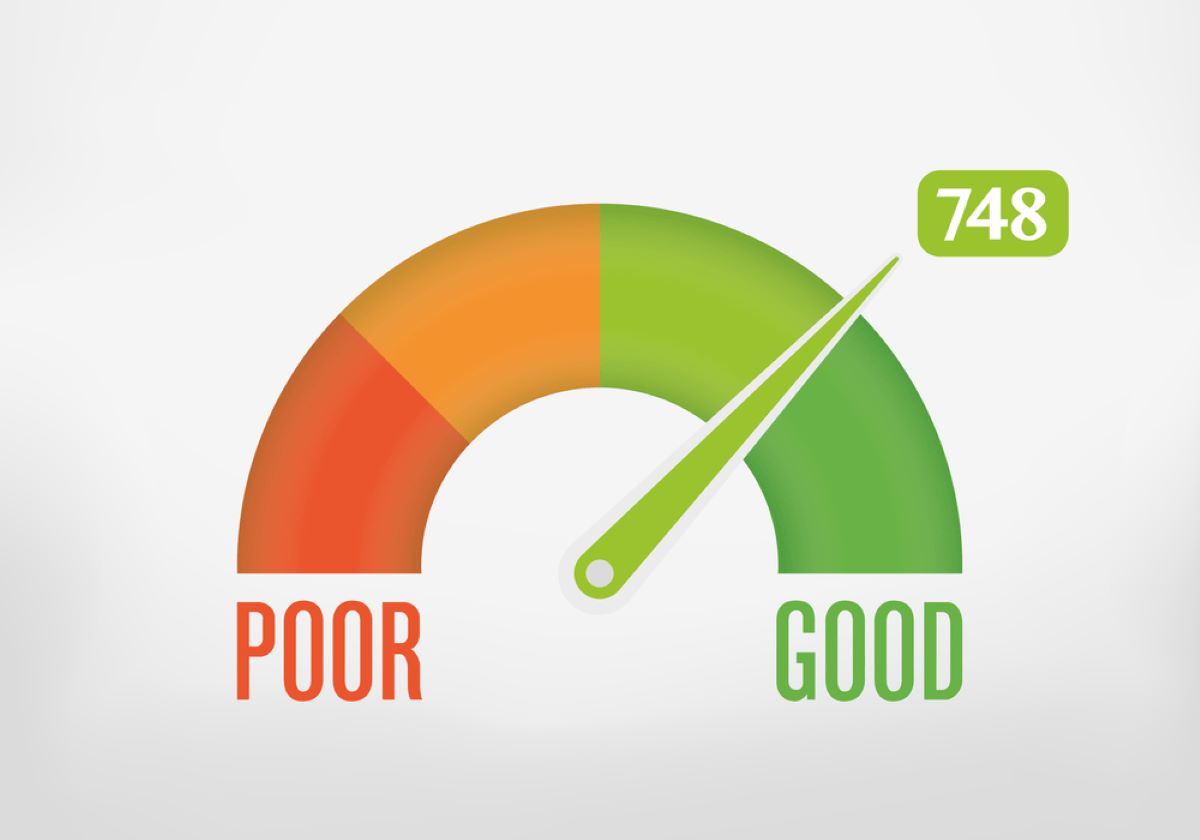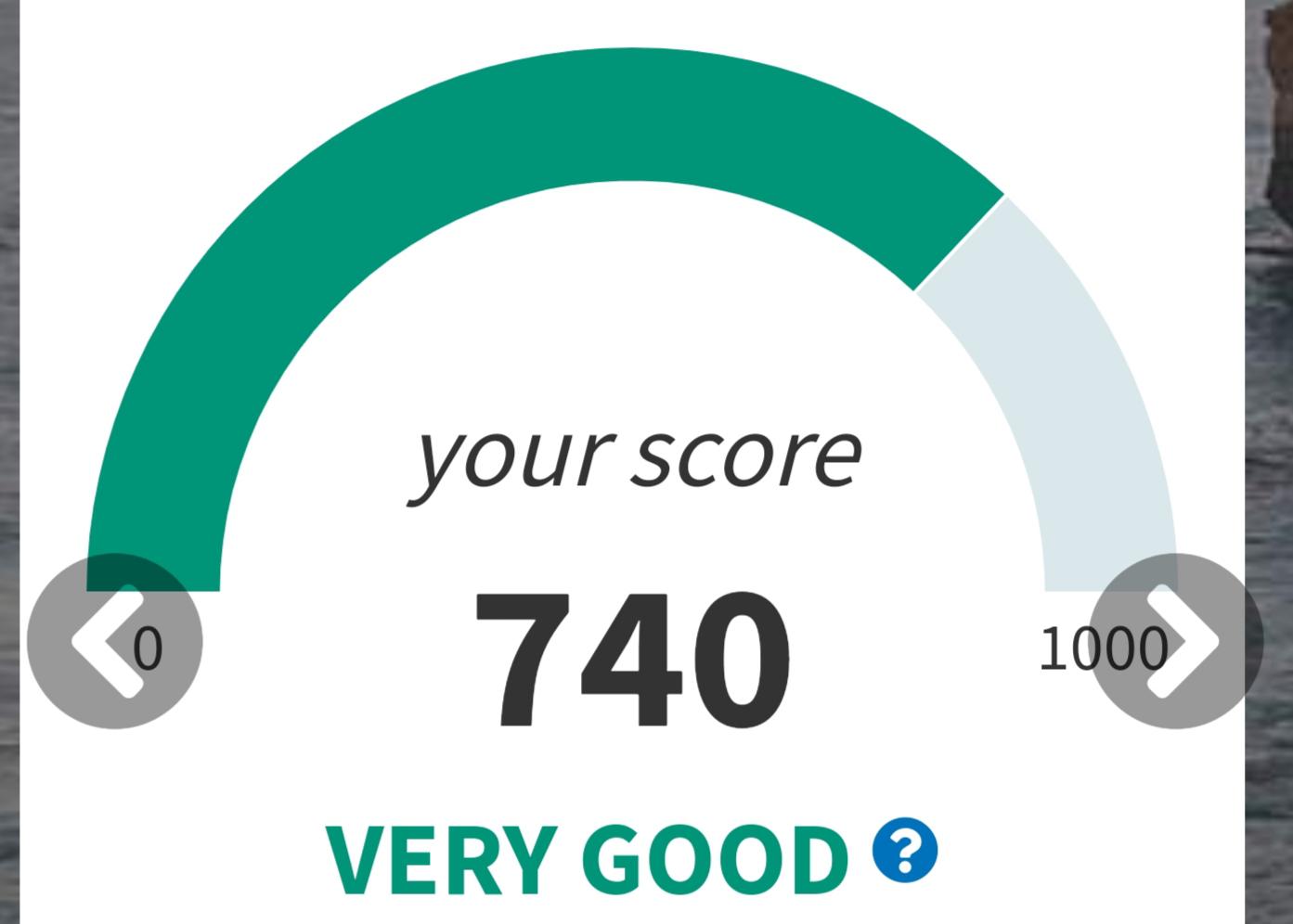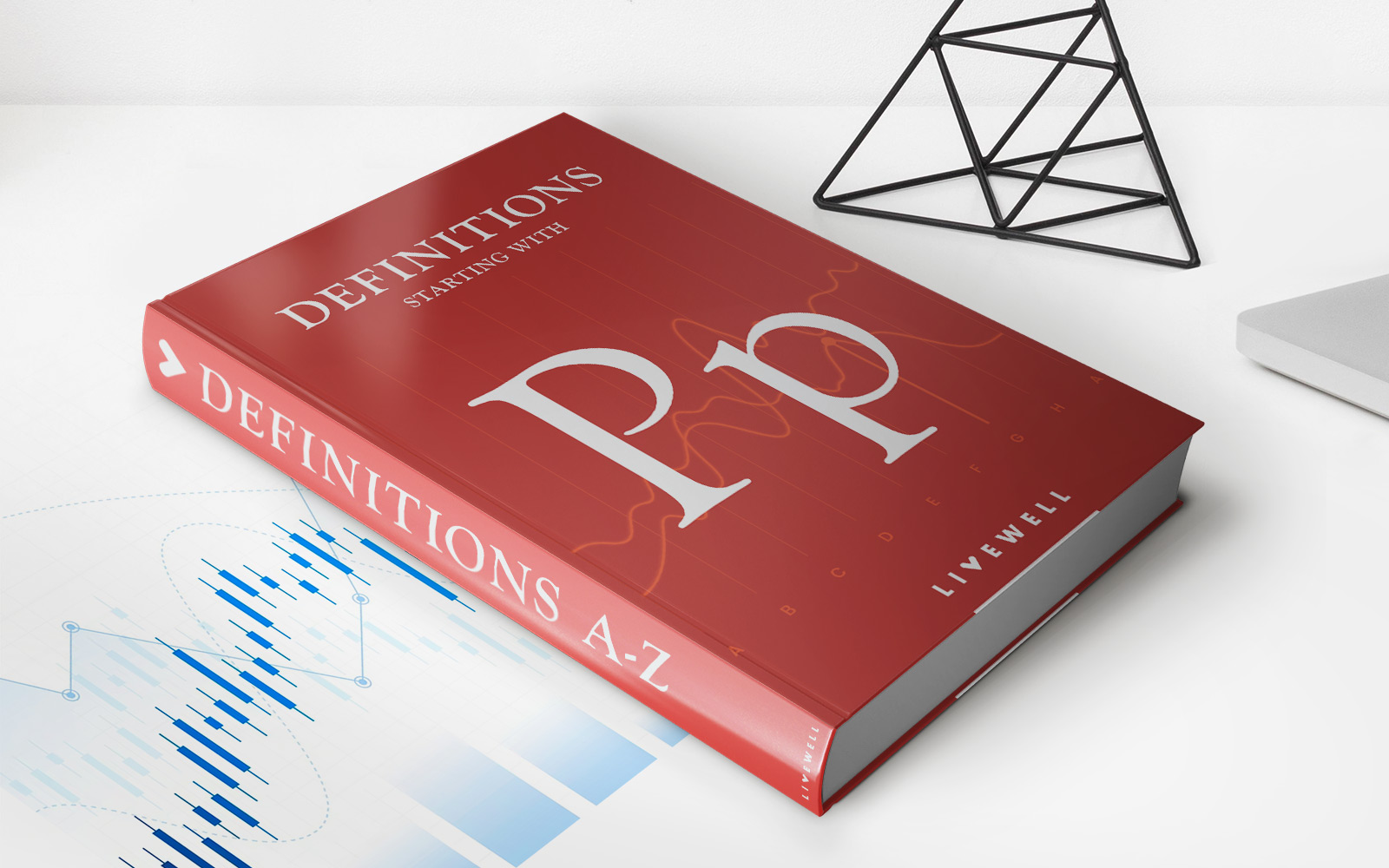

Finance
What Is 580 Credit Score
Published: October 21, 2023
Discover the significance of a 580 credit score and its impact on your financial journey. Learn how to navigate and improve your credit score to achieve your financial goals.
(Many of the links in this article redirect to a specific reviewed product. Your purchase of these products through affiliate links helps to generate commission for LiveWell, at no extra cost. Learn more)
Table of Contents
- What is a 580 Credit Score?
- Factors that Contribute to a 580 Credit Score
- The Impact of a 580 Credit Score on Financial Goals
- Strategies for Improving a 580 Credit Score
- Common Misconceptions about a 580 Credit Score
- Tips for Managing Finances with a 580 Credit Score
- Resources for Individuals with a 580 Credit Score
- Conclusion
What is a 580 Credit Score?
A credit score is a three-digit number that lenders use to assess an individual’s creditworthiness. It reflects a person’s credit history, indicating how likely they are to repay borrowed money. A credit score of 580 falls within the range of Fair credit, according to the FICO credit scoring model, which ranges from 300 to 850.
A 580 credit score typically indicates a less than optimal credit history. It suggests a history of late payments, high credit utilization, or potentially even public records such as bankruptcy or foreclosure. With a credit score at this level, individuals may find it challenging to qualify for certain loans or credit cards, and if they are approved, they may receive higher interest rates and less favorable terms.
It’s important to understand that credit scores can vary depending on the credit scoring model used by the lender. While the FICO score is the most widely used, other models like VantageScore may have slightly different criteria for determining creditworthiness.
Having a 580 credit score does not mean all hope is lost. It serves as an indication that there is room for improvement and provides an opportunity to take action to rebuild credit and improve financial health.
Factors that Contribute to a 580 Credit Score
Several factors contribute to a credit score of 580. Understanding these factors can help individuals gain insight into why their score is at this level and make informed decisions to improve it. Here are some key factors:
- Payment history: Payment history is one of the most significant factors influencing a credit score. Regularly missing payments, making late payments, or defaulting on loans can have a substantial negative impact on credit scores.
- Credit utilization: Credit utilization refers to the amount of available credit that an individual has used. High utilization ratios, especially if consistently maintained, can indicate financial instability and negatively affect credit scores. It is recommended to keep credit utilization below 30% of the available credit limit.
- Length of credit history: The length of a credit history plays a role in calculating credit scores. A shorter credit history may result in a lower score compared to individuals with a longer credit history, as there is less data available for assessment.
- Types of credit: Credit mix is another factor that impacts scores. A diverse credit mix that includes both revolving credit (credit cards) and installment loans (mortgage or car loans) is typically seen as positive. However, having too many accounts or opening multiple new credit accounts in a short period can have a negative impact.
- New credit inquiries: Applying for new credit involves a credit check, also known as a hard inquiry. Having too many hard inquiries within a short period can suggest financial strain or a higher risk of defaulting, leading to a lower credit score.
Understanding these factors can guide individuals in making responsible financial decisions to improve their credit score over time. While it may take time and effort to rebuild credit, focusing on these factors can help individuals achieve a better credit score.
The Impact of a 580 Credit Score on Financial Goals
A credit score of 580 can significantly affect an individual’s ability to achieve their financial goals. Here are some ways in which a 580 credit score may impact various financial aspects:
- Loan Approval: With a credit score of 580, individuals may face challenges in obtaining loan approvals. Lenders consider credit scores to assess the risk of lending money. A lower credit score can lead to higher interest rates, more stringent terms, or even outright denial of loan applications.
- Mortgage Eligibility: A 580 credit score may make it difficult to qualify for a mortgage. Mortgage lenders typically have stricter criteria for credit scores, requiring higher scores to secure favorable interest rates and loan terms. With a 580 score, individuals may have limited options or need to explore alternative financing options.
- Credit Card Applications: Applying for a credit card with a 580 credit score may result in limited options or higher interest rates. Individuals may be restricted to secured credit cards or cards with higher fees and lower credit limits. Responsible credit card usage can help rebuild credit over time.
- Insurance Premiums: Some insurance providers use credit scores as a factor in determining premiums. A lower credit score may result in higher premiums for auto insurance, homeowner’s insurance, or other insurance policies. Improving credit can lead to potential savings on insurance premiums.
- Rental Applications: Landlords often perform credit checks when screening potential tenants. With a credit score of 580, individuals may face challenges in securing rental properties. Landlords may require larger security deposits or co-signers to mitigate their risk.
Having a 580 credit score doesn’t mean that financial goals are unattainable. It underscores the importance of rebuilding credit and adopting responsible financial habits. By improving credit scores, individuals can enhance their financial opportunities and have greater flexibility in achieving their long-term goals.
Strategies for Improving a 580 Credit Score
While a credit score of 580 may present some challenges, it is possible to improve it over time. Here are some strategies that can help individuals raise their credit score:
- Make Timely Payments: Consistently making on-time payments is one of the most effective ways to improve a credit score. Setting up automatic payments or reminders can help ensure bills are paid promptly.
- Reduce Credit Card Balances: Focus on reducing outstanding balances on credit cards. High credit utilization can negatively impact credit scores. Paying off debts and keeping balances low can demonstrate responsible credit management.
- Be Mindful of New Credit: Avoid opening multiple new credit accounts within a short period as it can lower your score. Instead, focus on responsible credit usage and managing existing accounts effectively.
- Check Credit Reports: Regularly monitor credit reports to identify errors or inaccuracies that could be negatively impacting your score. Dispute any incorrect information with the credit bureaus to have it rectified.
- Manage Debt Consolidation: Consider debt consolidation if it makes sense for your financial situation. This involves combining high-interest debts into a single, lower-interest loan, which can make debt repayment more manageable.
- Build Positive Credit History: If you have limited credit history, consider opening a secured credit card or becoming an authorized user on someone else’s account with good payment history. This can help establish and build positive credit history.
- Seek Professional Guidance: If you’re struggling to improve your credit score, consider working with a reputable credit counseling agency. They can provide personalized advice and guidance to help you develop a plan for improving your credit.
- Exercise Patience: Improving credit takes time and patience. It’s important to be consistent with responsible credit habits and understand that progress may not happen overnight. Stay motivated and maintain good financial habits.
By following these strategies, individuals can begin to rebuild their creditworthiness and gradually raise their credit score over time. The key is to be proactive and persistent in implementing responsible financial habits.
Common Misconceptions about a 580 Credit Score
Having a credit score of 580 can lead to various misconceptions and misunderstandings regarding creditworthiness and financial opportunities. Let’s debunk some of the common misconceptions about a 580 credit score:
- It’s Impossible to Improve: Many people believe that a credit score of 580 is a permanent condition. However, this is not true. With the right strategies and consistent financial habits, it is possible to improve a credit score over time.
- All Loans and Credit Cards Are Unattainable: While it may be more challenging to get approved for loans or credit cards with a 580 credit score, it doesn’t mean it’s impossible. There are lenders and credit card issuers who specialize in working with individuals with lower credit scores. It may require higher interest rates or less favorable terms, but options are still available.
- Closing Credit Cards Will Improve Score: It’s a common misconception that closing credit card accounts will automatically improve a credit score. In reality, closing accounts can actually harm the score as it reduces the total available credit and can increase the credit utilization ratio. Instead, focus on responsible credit card usage and paying off balances.
- Filing for Bankruptcy is the Only Solution: While bankruptcy may be an option for some individuals facing severe financial difficulties, it should not be seen as the only solution to improve a credit score. Bankruptcy has significant long-term consequences and should only be considered as a last resort.
- One Late Payment Won’t Affect the Score: Contrary to popular belief, even a single late payment can have a negative impact on a credit score. Payment history is a crucial factor in calculating credit scores, and consistent on-time payments are essential for maintaining a healthy credit profile.
It’s important to separate fact from fiction when it comes to credit scores. While a 580 credit score may pose certain challenges, it does not define an individual’s financial future. By understanding the realities and taking appropriate actions, individuals can gradually improve their creditworthiness and open up more opportunities for their financial goals.
Tips for Managing Finances with a 580 Credit Score
Managing finances with a 580 credit score requires careful planning and smart financial habits. While rebuilding credit, individuals can adopt the following tips to navigate their financial circumstances:
- Create a Budget: Establishing a budget is crucial for managing finances effectively. Track income and expenses to ensure that all financial obligations are met on time. Prioritize essential expenses and cut back on non-essential discretionary spending.
- Focus on Debt Repayment: Allocate funds towards paying off existing debts, particularly those with high interest rates. Make consistent monthly payments and consider paying more than the minimum required to reduce debt faster and save on interest charges.
- Build an Emergency Fund: Having an emergency fund is essential for unexpected expenses or financial setbacks. Aim to save three to six months’ worth of living expenses in a separate account to provide a cushion during challenging times.
- Avoid Taking on New Debt: While trying to improve credit, it’s important to avoid accumulating new debt. Only take on new credit if necessary and ensure that all new credit accounts are managed responsibly.
- Monitor Credit Reports: Regularly check credit reports from all three major credit bureaus (Experian, Equifax, and TransUnion) for any errors, inaccuracies, or signs of identity theft. Dispute any incorrect information promptly to ensure an accurate credit profile.
- Communicate with Lenders: If you are struggling to meet financial obligations, reach out to lenders and creditors to discuss repayment options. They may be willing to work out a modified payment plan or offer temporary relief to help you get back on track.
- Educate Yourself: Take advantage of financial education resources available online or through community organizations. Learn about credit management, budgeting, and personal finance to make informed decisions and improve overall financial literacy.
- Consider Credit Counseling: If managing finances becomes overwhelming, seek professional credit counseling. A reputable credit counseling agency can provide guidance, help negotiate with creditors, and offer personalized solutions tailored to your situation.
By implementing these tips, individuals can actively take control of their financial situations and work towards improving their credit score over time. It’s important to remain patient, stay committed to responsible financial habits, and celebrate small victories along the way.
Resources for Individuals with a 580 Credit Score
For individuals seeking guidance and assistance in improving their credit score, various resources are available to provide support and education. Here are some helpful resources:
- Credit Counseling Agencies: Non-profit credit counseling agencies offer personalized financial counseling and debt management programs. They can provide guidance on budgeting, credit repair, and debt repayment strategies. Look for agencies accredited by the National Foundation for Credit Counseling (NFCC) or the Financial Counseling Association of America (FCAA).
- Consumer Financial Protection Bureau (CFPB): The CFPB is a government agency that provides consumers with resources and tools to navigate financial challenges. Their website offers information on credit reporting, credit scores, and debt collection practices. They also provide a database of certified credit counseling agencies.
- Free Annual Credit Reports: Under federal law, individuals are entitled to one free credit report annually from each of the three major credit bureaus. Visit AnnualCreditReport.com to access your credit reports and review them for accuracy.
- Federal Trade Commission (FTC): The FTC provides consumer education and resources related to credit and financial management. Their website offers helpful articles and publications on credit repair, credit scoring, and identity theft prevention.
- Local Community Resources: Check with local nonprofit organizations, community centers, or libraries for workshops, seminars, or financial literacy programs. They may offer classes on budgeting, credit improvement, and debt management.
- Online Personal Finance Blogs and Forums: There are numerous personal finance blogs and forums where individuals share tips, success stories, and strategies for rebuilding credit. Engaging with online communities can provide valuable insights and support from people who have faced similar challenges.
- Credit Monitoring Services: Consider using credit monitoring services that provide access to credit scores, credit reports, and alerts for any changes or suspicious activities. While some services charge a fee, others offer free basic monitoring options.
- Financial Literacy Apps: Explore financial literacy apps that can help you track spending, manage budgets, and stay on top of bills and payments. Examples include Mint, You Need a Budget (YNAB), and Credit Karma.
Remember to research and verify the credibility of any resource before sharing personal information or enrolling in programs or services. By taking advantage of these resources, individuals with a 580 credit score can access the knowledge and tools necessary to improve their financial standing.
Conclusion
A credit score of 580 may present certain challenges when it comes to financial goals and opportunities. However, it’s important to remember that a credit score is not a permanent state. With dedication, discipline, and smart financial habits, individuals can take steps to improve their credit score over time.
Understanding the factors that contribute to a 580 credit score can help individuals identify areas for improvement. By making timely payments, reducing credit card balances, and being mindful of new credit, individuals can gradually rebuild their creditworthiness.
Managing finances with a 580 credit score requires careful budgeting, debt repayment strategies, and maintaining open communication with lenders. Establishing an emergency fund can provide a cushion during financial setbacks, while regular monitoring of credit reports can help identify and rectify any errors or fraudulent activity.
While working towards improving a credit score, it’s important to debunk common misconceptions and seek reliable resources for guidance. Non-profit credit counseling agencies, government organizations like the CFPB and FTC, and online financial literacy platforms can provide valuable information and support.
Remember, the journey to a better credit score takes time and patience. By staying committed to responsible financial habits and seeking assistance when needed, individuals can pave the way for a brighter financial future.














